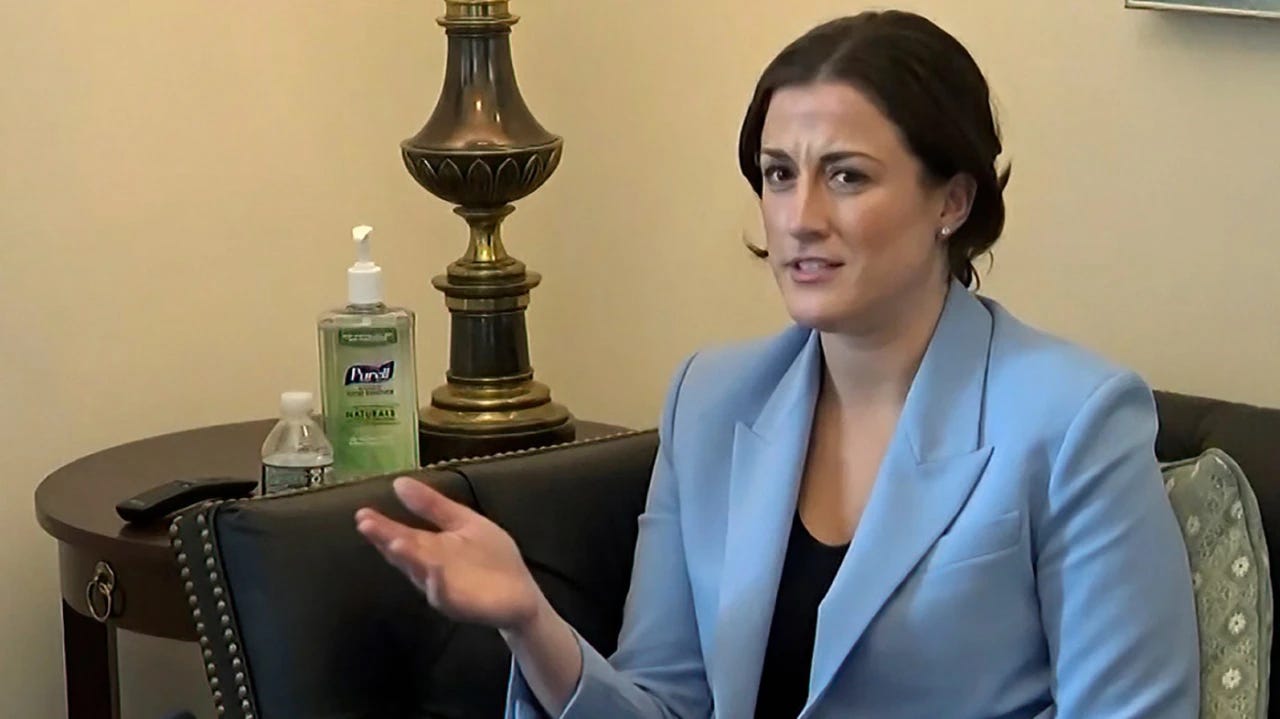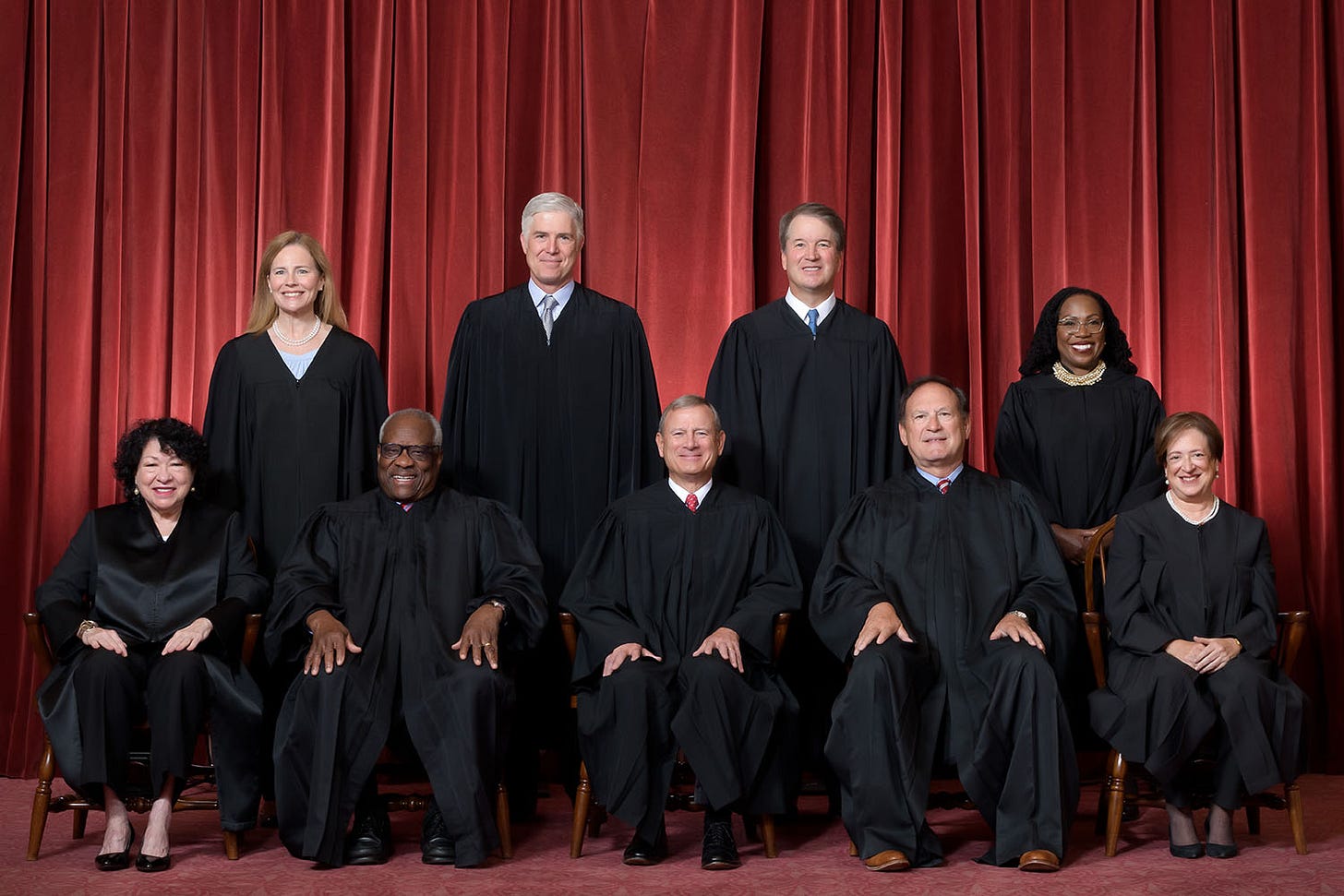Five Stories I’d Like to Read in 2023
Suggestions for filling empty reporting notebooks as the year begins.
Welcome to Second Rough Draft, a newsletter about journalism in our time, how it (often its business) is evolving, and the challenges it faces.
A new year brings lots of empty reporters’ notebooks. For our first newsletter of 2023, here are some stories I think are out there, and that I’d love to see filling those notebooks in the year ahead.
Who else got treated like Cassidy Hutchinson?
If you haven’t read Cassidy Hutchinson’s September deposition for the January 6 committee, I highly recommend it. In my view, it lays out a strong case for attempted obstruction of justice and possible subornation of perjury on the part of the lawyer secured for her and paid by what she invariably describes as “Trumpworld.” She swears she was repeatedly urged not to remember things she did remember, coached on how to derail her testimony, advised to avoid telling the committee the whole truth, all while jobs and cash support were dangled by a web of various Trump acolytes.
I hope the lawyer is facing a bar ethics inquiry, but beyond that, I’d love to know who else received the same sort of advice proffered to Hutchinson. Maggie Haberman of the New York Times was described by the lawyer as “friendly” to this Trump network. Anyone who has read Haberman’s recent Trump biography (the title calls him a con man, and the text bears that out) would have reason to doubt that. But while I think it may be a mistake for Haberman to be covering Hutchinson’s accusations in light of the lawyer’s remark, it does seem likely that Haberman and others could work to shed light on who else may have had convenient failures of recall, and why.
Why isn’t Facebook stepping into the Twitter void?
My increasing sense in recent weeks is that Twitter is dying not with a bang but a whimper, as many of those who made the most interesting contributions there simply wander away, while more ads from fewer advertisers clutter the feed. Meanwhile, activity at upstarts like Post and Mastodon seems to have dwindled rather than accelerated, centering increasingly on a few folks presumably being compensated in one way or another to try to lure others.
We are thus reminded that building new social networks is hard, and critical mass elusive. One competitor, of course, could step up and fill this void almost effortlessly—Facebook. That it is clearly choosing not to do so isn’t terribly surprising, but does seem an important story. It’s important because of what it says about the priorities of one of the 30 largest companies in the world by revenue, perhaps even more because of what it says about the market for news generally. Passing on replacing Twitter is the latest but perhaps also the most dramatic evidence of Facebook’s disdain for news.
It may, beyond that, be indicative of what Ben Smith of Semafor has been proclaiming for a year as the “end of social media” (even as Semafor itself still pours time and money into promoting itself across social). What would that mean?
What’s next after affirmative action?
Having ended constitutional protection for abortion (although not greatly reduced the number of abortions), and having energized their political opponents but not yet sufficiently to limit their own latitude, the conservative Republican activists on the Supreme Court seem to have set their sights this year on overturning 45 years of affirmative action in university admissions and perhaps elsewhere.
The story here appears at least two-pronged. First, how are colleges and universities preparing? Are they ready to sacrifice legacy admissions if the counterweight of affirmative action is taken away? Is there some available tactic analogous to the pills that seem to have significantly undermined the practical effect of the Court’s abortion decision? Next, what about the Court ruling itself? How far will the emboldened political actors on the Court go toward crafting new limits on addressing past discrimination and present inequities in American life? Whatever they do, will the press coverage of the decision fully grapple with the Court’s new role?
Is 2023 the year we normalize COVID?
This is a different sort of story, but I would love to see reporting on aligning our behavior with respect to COVID to the ways the pandemic has evolved. To be sure, the disease is still a threat to the elderly and those at higher risk, especially if unvaccinated. And yes, new and more dangerous variants are still possible. But on the current state of both the virus and available vaccines and treatments, it no longer makes sense, in most circumstances, to treat those ill with or exposed to COVID differently from, say, the flu. And yet many of us still do.
This will be a challenge for public health, and for institutions of all sorts, including the press. The answer seems not to be to pretend that COVID has disappeared, but rather to integrate what we have learned these last three years into public life, urging (and making it feasible) for those who are ill to stay home, taking special precautions around those at highest risk, varying our own behavior at times and in places where illnesses are more prevalent, acknowledging that those who choose to avoid or delay available vaccines are assuming risks for which they must bear at least some of the consequences.
What to make of Kamala Harris?
My own guess is that, sometime this coming summer, Joe Biden will announce that he will not be a candidate for re-election, the first president to do so in 55 years. (This may come after an earlier announcement to the contrary, intended to forestall lame duck-ness a bit.) Ahead of that, we would be well served by much better reporting on how Kamala Harris has been doing as vice president. It’s remarkable, I think, how much more attention, so far, has been devoted by political reporters to Ron DeSantis than to Harris.
Sure, her 2020 presidential campaign was poorly executed. What, if anything, has she learned from that? What role, specifically, has she played in the Biden Administration? Where have she and the President disagreed? Where has she made a difference? Looking farther back, how has Harris grown from her days as attorney general of our largest state and as a senator? How much do her anemic polls reflect sexism or racism, and how much is more personal? Perhaps most important, how well do the American people really know her? If not that well (as I suspect), what’s likely to change if and when they get to know her better? Waiting until she is the instant front-runner for a major party nomination for president to report out these stories is a mistake the press need not make in the year ahead.
Of course, there will be news in 2023 which takes us by surprise. Three years ago today almost no one expected a global pandemic. Two years ago, we didn’t see coming the next day’s insurrection. One year ago, a (failed) Russian invasion of Ukraine was not on most global bingo cards. This year will likely be no different. I look forward to the best reporting on those stories as well. Happy New Year.




This is a fantastic piece on five stories that I'm looking forward to reading in 2023. You have my full confidence that you are correct in pointing out the critical knowledge that both you and I will require in the years to come. In the future, I have no doubt that a great number of people will check this out and read it. You must also check out Aplusreportingservice.com it has some great insights too.
Update, since you linked this at your "Biden won't run" piece.
FB HAS stepped into the Twitter void, and it's getting a lot of pushback for creating a more obvious social media caste system than even Twitter's blue check 2.0. Plus, would you actually give a copy of your driver's license to Hucksterman to get certified for a Facebook blue check?
==
As for Harris? There HAS been some "inside baseball" stuff (all off the record, natch) recently at likes of Politico and The Hill. Dem insiders, by a strong majority, think she's a semi-disaster if not a full-on one.